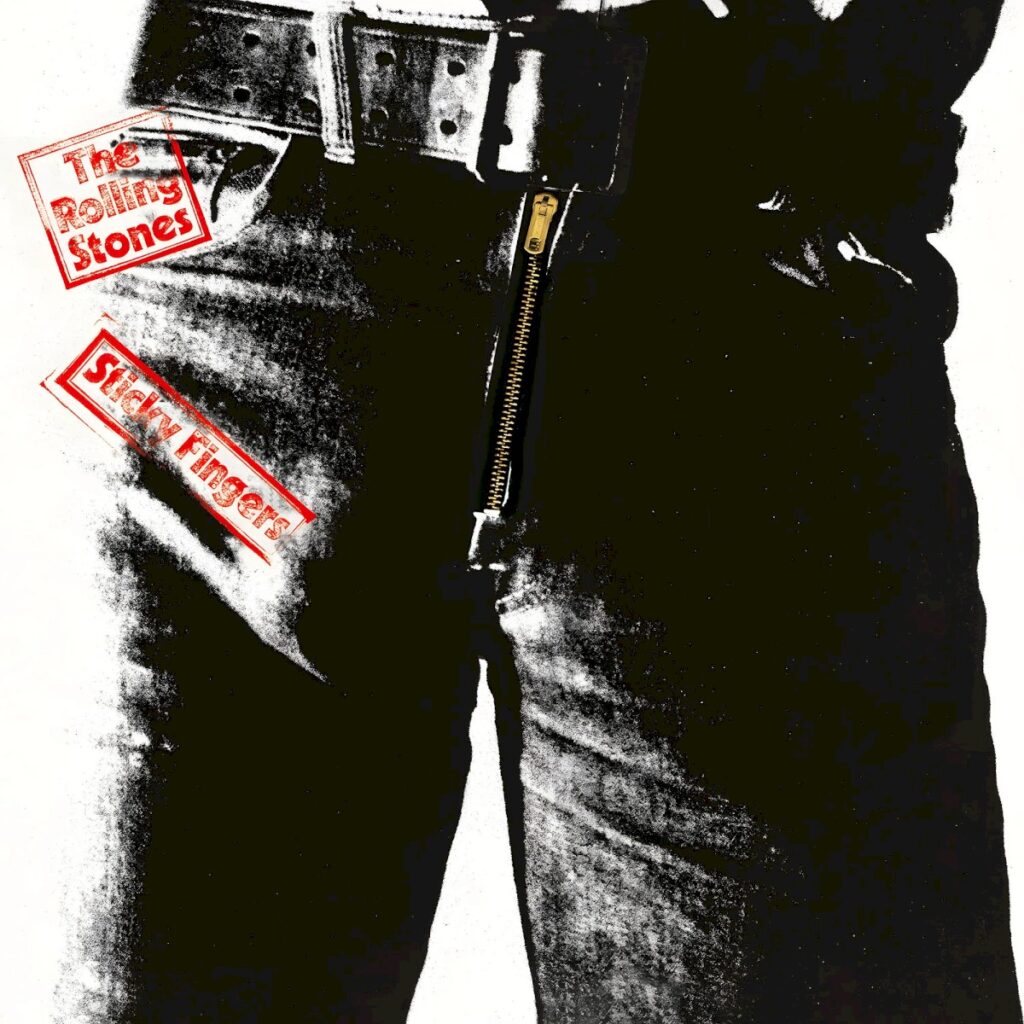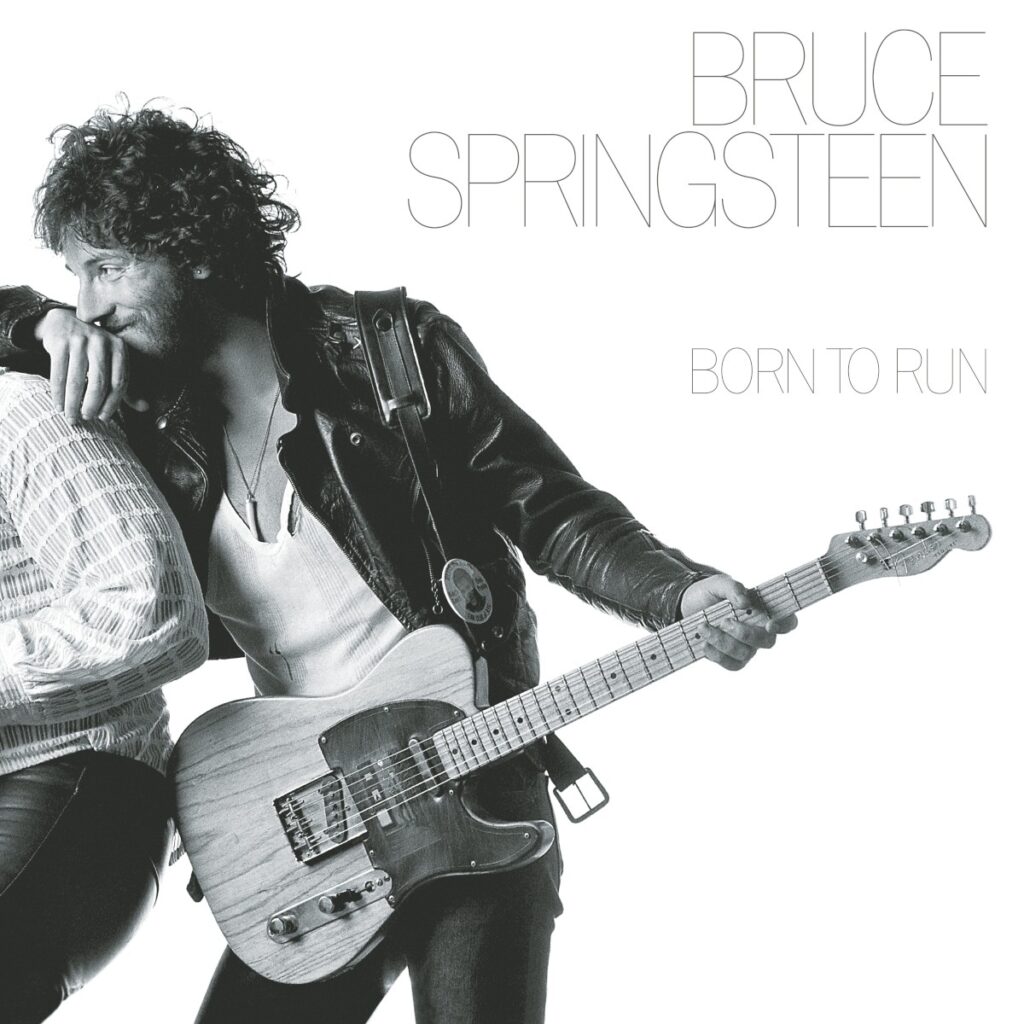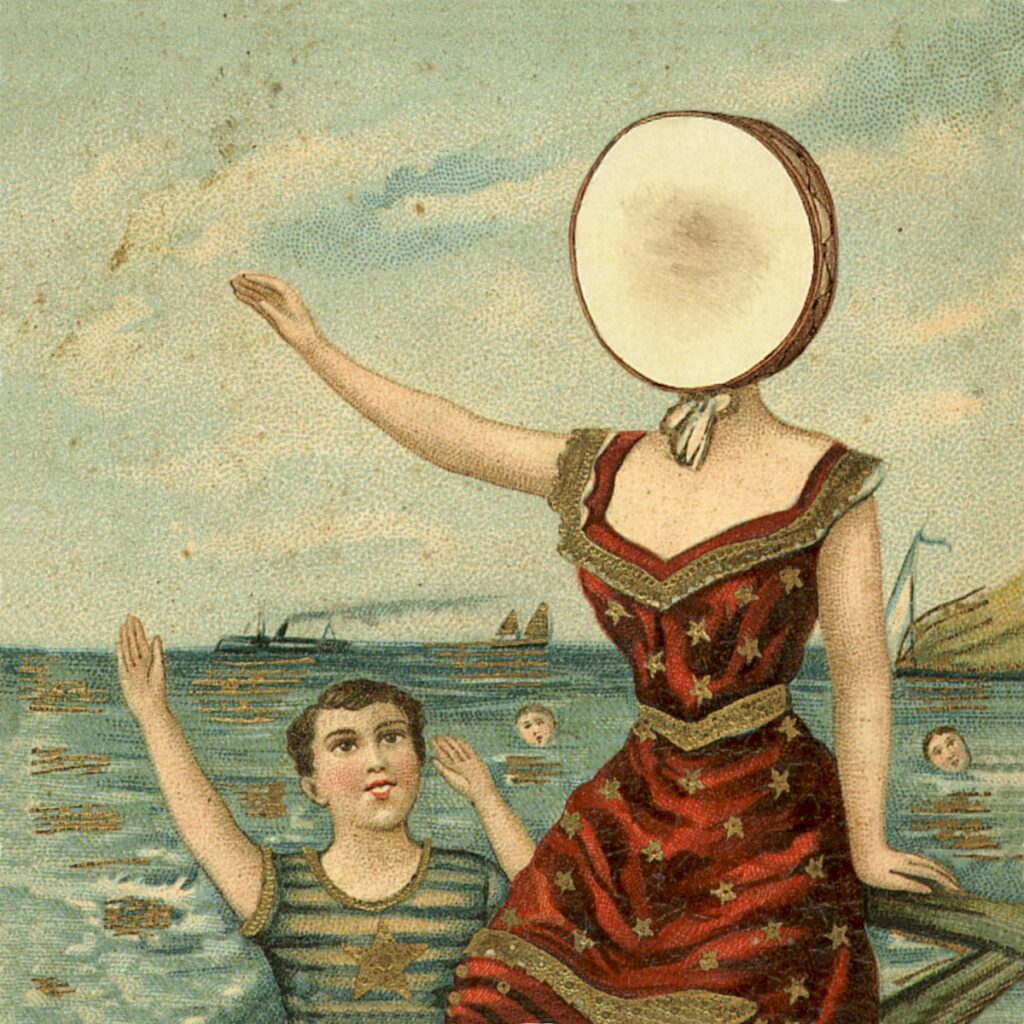The Rolling Stones, ‘Sticky Fingers,’ 1971

Sticky Fingers marks a pivotal moment in The Rolling Stones’ illustrious career, representing a significant shift from their earlier blues-inspired sound to a more rock-oriented style. Sticky Fingers is a rich tapestry of themes that reflect the tumultuous era of the early 1970s. The album is imbued with a sense of decadence, world-weariness, and a deep connection to American roots music. Narcotics are a major theme throughout the album, with over half the songs explicitly mentioning drug use. This preoccupation with drugs is evident in tracks like Sister Morphine and Dead Flowers, which explore the darker aspects of addiction and its consequences. In addition to drug use, the album delves into emotions of loss, frustration, and existential angst. Wild Horses and Moonlight Mile are poignant ballads that capture a sense of longing and melancholy. The latter, described as a “coked-out, somnambulant drift through an era’s last days,” serves as a fitting coda to the album, encapsulating the end of the 1960s counterculture. Musically, Sticky Fingers is a melting pot of genres, reflecting the Stones’ eclectic influences. The album is characterized by its eclectic mix of hard rock, roots rock, and rock and roll, with elements of country, blues, and soul woven throughout. The inclusion of Mick Taylor as the band’s new guitarist added a new dimension to their music, allowing them to compete with the likes of Led Zeppelin and Deep Purple in terms of guitar virtuosity. The album’s composition is characterized by its dynamic range and intricate arrangements. Can’t You Hear Me Knocking is a prime example of this, featuring a seven-minute jam that transitions from a riff-driven rock song to an extended instrumental piece. The song’s Latin-flavored coda, with Bobby Keys’ saxophone solo and Mick Taylor’s guitar work, is one of the album’s highlights and a testament to the band’s musical versatility. Other tracks, such as I Got the Blues and You Gotta Move, showcase the band’s deep connection to American roots music. The former is a soulful ballad reminiscent of Otis Redding, while the latter is a cover of a Mississippi Fred McDowell song that highlights the band’s bluesy swagger. In short, the raw energy, eclectic mix of genres, and the band’s willingness to explore darker themes in Sticky Fingers make the album a timeless classic and “the latest beautiful chapter in the continuing story of the greatest rock group in the world.”
Take me down, little Susie, take me down
I know you think you’re the queen of the underground
And you can send me dead flowers every morning
Send me dead flowers by the U.S. Mail
Say it with dead flowers at my wedding
And I won’t forget to put roses on your grave
Bruce Springsteen, ‘Born To Run,’ 1975

Bruce Springsteen’s third studio album, Born to Run, is an album deeply rooted in the American experience, capturing the zeitgeist of the mid-1970s. The album’s overarching theme is one of escape and the pursuit of the American Dream, set against a backdrop of economic hardship and social upheaval. The title track, Born to Run, epitomizes this theme, using the automobile as a metaphor for freedom and escape from a “death trap” town. Springsteen’s lyrics are filled with vivid imagery and recurring motifs of roads, highways, and the open road, symbolizing both physical and existential journeys. The characters in his songs are often “stranded, huddled, scared, crying, dying,” navigating the space between “Born to Run” and “Born to Lose”. This duality reflects the tension between hope and despair, a central theme that resonates throughout the album. Springsteen spent a considerable amount of time crafting the lyrics in Born to Run, aiming to avoid classic rock ‘n’ roll clichés and instead create fully developed, emotional characters. The lyrics are autobiographical, inspired by noir-like B movies and Springsteen’s own life experiences. They explore themes of love, freedom, and the search for meaning in a world marked by political corruption and social instability. Thunder Road, the album’s opening track, sets the stage with its evocative storytelling and poetic imagery. The song’s protagonist invites his love interest to escape with him, promising a life of adventure and possibility. Similarly, Backstreets tells a poignant tale of friendship and betrayal, capturing the desperation of those “imprisoned in America’s ‘Backstreets’.” Musically, Born to Run is a tour de force, blending elements of rock, folk, and orchestral music. Springsteen aimed to recreate Phil Spector’s legendary “wall of sound” production approach, resulting in a rich, layered sound that is both grand and intimate. The album features a diverse array of instruments, including piano, saxophone, glockenspiel, and violin, creating a sonic landscape that is both expansive and detailed. The album’s composition is marked by its dynamic arrangements and intricate instrumentation. Thunder Road begins with a delicate piano and harmonica intro, gradually building in intensity as the song progresses. Jungleland, the album’s epic closer, features a dramatic violin part, a frenzied sax solo by Clarence Clemons, and a powerful lead guitar, culminating in a grand, operatic finale.
Outside the street’s on fire in a real death waltz
Between what’s flesh and what’s fantasy
And the poets down here don’t write nothing at all
They just stand back and let it all be
And in the quick of the night
They reach for their moment and try to make an honest stand
But they wind up wounded, not even dead
Tonight in Jungleland
Neutral Milk Hotel, ‘In the Aeroplane Over the Sea,’ 1998

Now how I remember you
How I would push my fingers through
Your mouth to make those muscles move
That made your voice so smooth and sweet
But now we keep where we don’t know
All secrets sleep in winter clothes
With the one you loved so long ago
Now he don’t even know his name
Neutral Milk Hotel’s In the Aeroplane Over the Sea stands as a seminal work in the indie rock and psychedelic folk genres. In the Aeroplane Over the Sea is a concept album that draws heavily from the diary of Anne Frank, “The Diary of a Young Girl.” Jeff Mangum, the band’s frontman and primary songwriter, was profoundly affected by Frank’s writings, which he read shortly before composing the album. Mangum described his experience with the diary as emotionally overwhelming, stating, “Then I spent two days reading it and completely flipped out … spent about three days crying … it stuck with me for a long, long time.” The album’s themes are multifaceted, exploring love, loss, mortality, and the passage of time. It juxtaposes the innocence of childhood with the harsh realities of adulthood, often through surreal and abstract imagery. The recurring motif of beauty, both in a person’s face and in life’s fleeting moments, underscores the transient nature of existence. Jeff Mangum’s lyrics are a defining feature of In the Aeroplane Over the Sea, which are characterized by their surrealistic and opaque nature, often referencing seemingly unrelated subject matter. For instance, the opening track The King of Carrot Flowers, Pt. One touches on childhood fantasies, sexual awakenings, domestic violence, and religious fanaticism. The title track, In the Aeroplane Over the Sea, encapsulates the album’s existential musings with lines like, “And one day we will die / And our ashes will fly from the aeroplane over the sea / But for now we are young / Let us lay in the sun / And count every beautiful thing we can see.” These lyrics reflect a poignant acceptance of mortality while celebrating the ephemeral beauty of life. The album’s composition is a blend of traditional indie rock instruments like guitar and drums with unconventional elements such as the singing saw and uilleann pipes. The use of punk-style fuzz bass, Scottish uilleann pipes, and a Casio tone dubbed the “zanzithophone” adds to the album’s unique sonic palette. The production of In the Aeroplane Over the Sea is intentionally low-quality, a choice that enhances its raw and unpolished aesthetic. The album’s production style has been described as “fragile, creaky, dignified, and ballsy,” capturing the essence of the band’s unconventional spirit. The album’s unique production also contributes to its emotional intensity. The lo-fi sound creates a sense of intimacy, making listeners feel as though they are experiencing Mangum’s personal musings firsthand. This rawness is a significant factor in the album’s ability to evoke intense emotional responses from its audience.
And here’s where your mother sleeps
And here is the room where your brothers were born
Indentions in the sheets
Where their bodies once moved but don’t move anymore
And it’s so sad to see the world agree
That they’d rather see their faces filled with flies
All when I’d want to keep white roses in their eyes